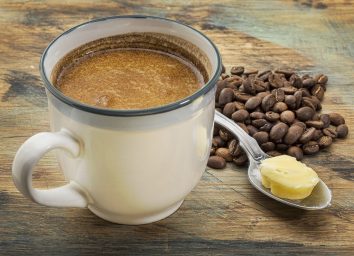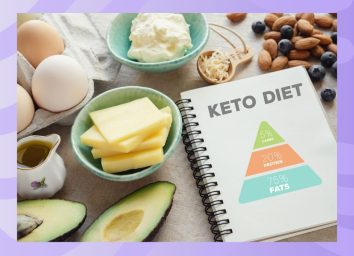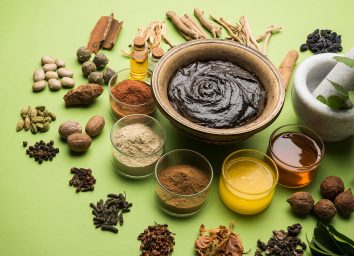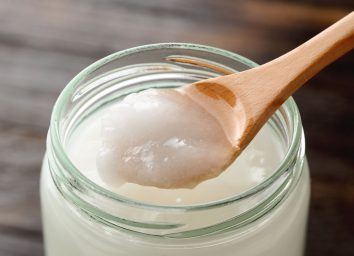What Is Ghee and Should You Start Using It?
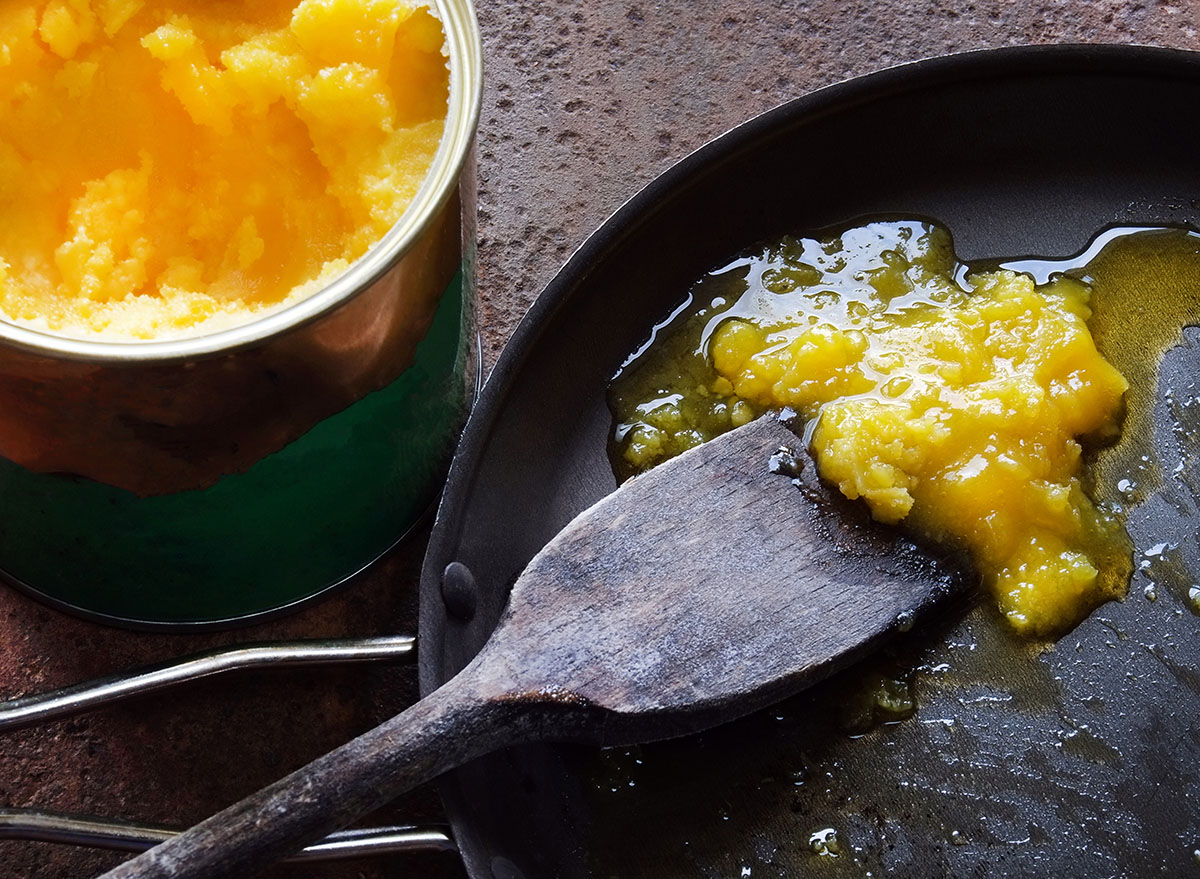
As the rise of healthy fats continues and our nutritional lexicon becomes more saturated, there's another high-fat item lining supermarket shelves, luring you with its bright, golden hue. A clarified butter with roots in ancient India, ghee remained marginally unknown in the United States until the last few years, when it skyrocketed in popularity with the resurgence of the keto diet and the upswing of holistic nutritionists preaching good fats for weight loss, gut health, and brain functioning. But what is ghee exactly? And is it actually good for you?
What is ghee?
Used for centuries, ghee is a type of clarified butter and a staple in Indian cooking, as well as Southeast Asian and Mediterranean cuisines. Historically, it has been utilized in Ayurvedic healing rituals and in religious ceremonies. While it may appear newish to the shelves of American health food stores, it's the OG good fat, dating back to 2000 B.C., when villagers in Southern India clarified butter to keep it from spoiling in high temperatures.
Related: What is an Ayurvedic diet? Discover your dosha and how to fuel it.
While it's often referred to as clarified butter, ghee goes one step further and undergoes a longer heating process that yields a richer, deeper, nutty flavor. To start, ghee most typically begins as a grass-fed butter slowly simmered, thus evaporating any excess moisture and removing all remaining milk solids. Clarified butter undergoes a similar heating process but is removed earlier, resulting in a lighter flavor and lower burning point.
Is it better than butter (and other oils)?
Often called liquid gold or the better butter, ghee has vast health benefits ranging from better digestion, greater fat-soluble vitamin intake, bone density improvement, and healthy skin rewards.
Its smoke point is 485℉, whereas butter burns at 350℉. A higher heat point means more bioavailability of nutrients. Whereas using traditional butter or olive oil may be what you grew up with, the lower smoke point can kill the nutritious, good fats and creates free radicals that cause oxidative stress and harm to the body.
What are the health benefits of ghee?
Ghee is rich in butyrate, a short-chain triglyceride stated to aid in digestion, boost gut health, curb inflammation, and improve insulin sensitivity. According to well-known clinical nutritionist, Dr. Josh Axe, "butyrate's potential to heal inflammation could have far-reaching benefits when it comes to preventing conditions like arthritis, inflammatory bowel disease, Alzheimer's, diabetes and even certain types of cancer."
On the topic of eased digestion, ghee's heating process means a casein- and lactose-free final product. More checks on the digestion-ease list. Ghee also contains conjugated linoleic acid (CLA), a fatty acid that may help lessen body fat, prevent cancer cells forming, and alleviate inflammation. Lastly, ghee can boost intake of fat-soluble vitamins A, E, and K, which can enhance skin's plumpness and glow, improve eyesight, strengthen hair, and strengthen bones.
How to use ghee
The great thing about ghee is that it's easy to use and you can find it at any health food store (and in many grocery stores too). You can cook all kinds of things with it: sautéed vegetables, wok stir fries, and any number of baked goods. Holistic doctor Robin Berzin, M.D., founder and CEO of Parsley Health, enjoys adding a teaspoon to her morning beverage. Pratima Raichur, Ayurvedic doctor, author, and holistic spa owner, also uses ghee in a number of her skincare products, citing it as "an excellent base oil because of its penetrating and soothing qualities."
A note to vegans and the vegan-curious
Even with milk fats removed, ghee remains an animal byproduct. However, integrative neurologist, Kulreet Chaudhary, M.D., author of The Prime: Prepare and Repair Your Body for Spontaneous Weight Loss advocates for the "middle path" when approaching veganism and advises against dietary rigidity. Though she remains mostly vegan, she uses grass-fed ghee in her diet because she "believe[s] (and research supports) that this is the healthiest (and most humane and environmentally respectful) way to eat."
Bottom line: To ghee or not to ghee?
Using grass-fed butter or grass-fed ghee ultimately has the same health benefits, so it's a bit of a stalemate. However, ghee will benefit those with lactose sensitivities, ultimately aiding in digestion. For the dairy-loving and/or keto practitioners, you're golden with grass-fed butter. But for the 65% of people in the world with some level of lactose intolerance, you'll be glad you switched to ghee, and so will your guests who won't have to fear upset stomachs after enjoying those holidays delights. It's an easy butter and cooking oil substitution with a wonderful rich flavor. Just remember to look for grass-fed, organic ghee to guarantee you're receiving the most nutrients without GMOs.
Get our recipe for Perfect Homemade Ghee.
